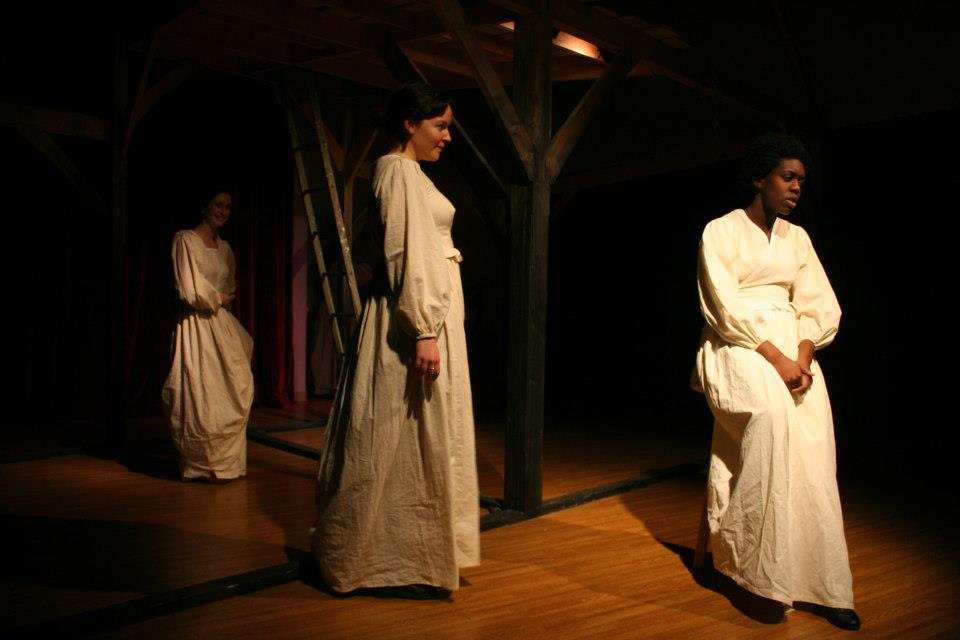
Photo credit: Whistler in the Dark; This show contains material that may trigger PTSD – please try to see it anyway.
presented by Whistler in the Dark Theatre
Vinegar Tom is presented by special arrangement with Samuel French, Inc.
by Caryl Churchill
directed by Mac Young
songs composed by Molly Allis, Juliet Olivier & Veronica Barron
music Composed and Performed by: Veronica Barron & Tony Leva
lyrics by Caryl Churchill
January 11th-February 2nd
The Calderwood Pavilion at the BCA
539 Tremont Street, Boston, MA 02116
Whistler in the Dark Theatre Facebook Page
Review by Gillian Daniels
TRIGGER WARNING
(Boston) Historical fiction is often said to reflect the era in which it’s written rather than the era it’s written about. Caryl Churchill’s Vinegar Tom, originally performed in 1976, mirrors the growing awareness of feminism. In 1600’s England, a group of women deal with being unmarried, unrepresented, and unwanted. The result is a play that’s appropriately bleak.
Vinegar Tom begins with Alice, portrayed by the excellent but often subtle Becca A. Lewis. Lewis playfully drives the show as a young woman with a feather-light conscience despite having an infant son out of wedlock. Her performance is credible not as a woman anachronistically independent or “ahead of her time,” but as someone who wants to marry and live on her own terms. She is aided by her mother, Joan (Karin Webb), who is largely dismissed and derided by their town as an old hag.
Alice’s struggle to find a husband and a place in the world is mirrored by Betty (Melis Aker). Due to not wanting to marry a local rich man and instead wander the fields she loves so much, Betty is diagnosed as “hysterical,” tied up, and initially treated by a doctor (David Anderson). Her torture is brief but serves as a dark harbinger of what’s to come for the rest of the women in the community when housewife Margery (Caroline Price) decides she and her husband have been cursed by a witch somewhere nearby.
Riveting story and rising action is interspersed with odd musical interludes. Veronica Barron and Tony Leva perform the jazzy songs well, but their comic tone jives strangely with the rest of the play. Sometimes the music is strangely entertaining but often it’s just strange. The issues they sing about, though, like age, marriage, and casual cruelty, are subjects easily grounded in the present.
Vinegar Tom doesn’t preach a message so much as depict a life where women can only participate in the roles they’re given. It could be said that the main job of men in the play is mistreating women, whether it’s Margery’s husband, the lustful Jack (John Greene), or Alice’s Scottish lover (Anderson), but they, too, have been forced into a world of static, gendered roles. Everyone is complacent in keeping this less than optimal system alive and kicking. These issues spiral down from both the past of the 17th and 20th centuries into contemporary politics of abortion rights, the pressure to marry, and the enduring question of what it means to live as an impoverished woman in a world set up by men with power. Despite jarring moments, Vinegar Tom is a well-wrought play and one that I encourage few to miss.
